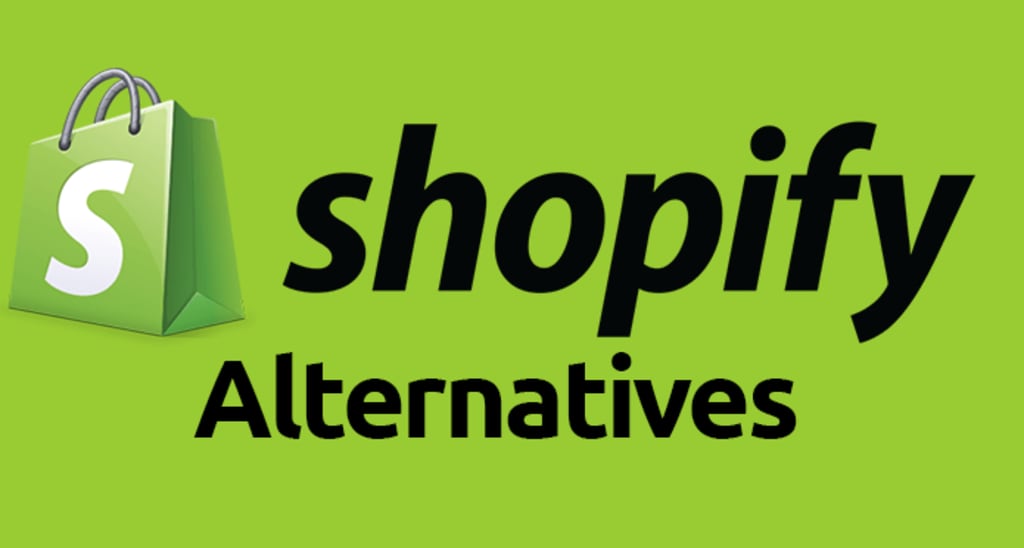Shopify Alternatives: Larby Amirouche’s Guide To Free E-Commerce Sites
Larby Amirouche gives his insights on some free alternative e-commerce platforms to Shopify. There are way more platforms than Shopify!

Shopify Alternatives: Larby Amirouche’s Guide To Free E-Commerce Sites
Nothing is perfect and Shopify is one of those. It is not a one-size-fits-all solution, and there are some requirements it can’t accommodate.
Fortunately, there are still other providers to fill the gaps that giants like Shopify have left unattended.
Larby Amirouche has been mastering E-Commerce for a long time. He already has experience dealing with different sites, therefore, he prepared a guide that could benefit every entrepreneur out there. He will share some features and offerings of these sites so you can find what’s best for your business.
Five Shopify Alternatives
Prestashop
Wix
Big Commerce
LemonStand
Magento
Some Of The Common Issues With Shopify
Before we give you
Larby Amirouche’s insights on other free E-Commerce sites, here are some of the common issues that most business owners have on Shopify.
Additional transaction fees
Some business owners are often not aware of these additional transaction fees. The site will require you to choose to process your payments directly through Shopify's in-house service. If you just learned this now, be ready to pay up to 2% for every transaction.
Liquid
This site’s custom template markup language is not the most easy to use syntax out there.
Advanced features
The main reason why you go to a free E-Commerce site is to enjoy perks without cashing out huge money. But in Shopify, real-time shipping rates, the ability to accept gift cards are only available in the higher-tier plans. The platform locks many advanced features behind a paywall. So if you need extra functionality, you might pay more than your allotted budget.
SEO tools
Another use of the website is for SEO but the rigid URL structures and a WordPress plugin that uses iFrames doesn’t quite translate into the best possible ranking performance. Plus, on Shopify, you can’t customize your checkout page.
Shopify Alternative: Larby Amirouche’s Guide To Free E-Commerce Sites
Prestashop

Prestashop is for entrepreneurs on a tight budget. You could say it’s free, but you must still consider that you have to buy web hosting and a domain. But luckily, Prestashop does have a hosted version through its partnerships with 1&1, WebHostingHub, TMD, Microsoft Azure, and some other providers.
Even though this is not as comprehensive in themes and templates as Shopify, the usability is as good as you can expect from a free platform. And good news, it has no additional transaction fees.
On top of that, Prestashop supports 25 languages and multiple currencies, international sales, unlimited products and attributes, and abandoned cart details.
When you only have one pre-installed theme, It’s going to be tough to scale when your shop grows. On the other hand, you can still install a third-party theme.
Prestashop has limited free modules, but the premium ones allow you to enhance your site by a mile.
If you decided to hire a developer or take the time to go through the guides and tutorials available for PrestaShop users, you can build a competent online shop with minimal initial investment.
Wix
Wix is a straightforward alternative to Shopify. This site gives you everything you need in an easy-to-use interface. Plus, Wix also offers affordable plans.
Wix has more than a hundred templates. It also provides you a wide range of apps. It also has highly customizable theme options, and a sleek editor, making it a go-to solution for both newbies and advanced users.
Wix provides you with two methods to set up your site. If you are a newbie, this ADI is the suggested set-up for you. It is an automated assistant that suggests a configuration based on your answers in the initial questionnaire.
If you think you want a more customized site, use Wix Editor. This will allow for you to have full user control and customization. It’s mostly drag-and-drop.
When it comes to affordable rates, Wix offers a lot. It has 280+ apps, add-ons, and plugins to embed social media, live chat, payment gateways, coupons, and whatnot. You can also embed HTML codes, light boxes, and apply various button styles.
Compared to Shopify, Wix’s $5/mo plan comes with 1GB bandwidth and 500MB storage, and an ability to connect to a custom domain.
Meanwhile, Wix eCommerce plan at $16,50/mo bundles 10GB bandwidth and 20GB storage, a free domain name, and some add-ons, while VIP at $24,50/mo comes with unlimited traffic. An obviously cheaper price than Shopify.
3. BigCommerce
BigCommerce is just the perfect tool when you want a flexible drag-and-drop editor. It’s also a well-known provider that offers a full cycle solution to websites.
There are only seven free themes across all industries but it is all stunning. So save a few extra bucks for premium themes if you want more.
BigCommerce has advanced content-marketing features allowing you to promote your product on the web and increase conversion rates. This provider also has hundreds of built-in features so you are not forced to buy on the app store as you would with Shopify.
This alternative can also allow you to cater multiple channels, therefore, you can manage your accounts on Amazon, eBay, Facebook, and Pinterest from BigCommerce. Your inventory syncs across the shops, so that you never oversell.
Monthly cost for BigCommerce could be from $29.95 to $249.95. The added annual sales volume limitation is embedded in every plan, so if you’re planning to sell more than $50,000 a year you need to upgrade. If you don’t do it this provider will do it for you.
Larby Amirouche’s Pro Tip: Use BigCommerce if you want to run a large E-Commerce site and you think SEO is crucial for your business growth.
4. LemonStand
Are you a medium-to-large business owner? You must consider LemonStand.
LemonStand is versatile and highly-customizable but comes with a steep learning curve. You will be needing a developer on this one. That said, the platform provides a neat migration tool that allows a smooth migration especially if you came from Shopify.
If you are considering LemonStand, prices range from $19 to $399 and there’s a little caveat that may turn into a significant drawback.
In Shopify it has no limits on monthly orders. Meanwhile, LemonStand only allows limited orders per month depending on your plan.
Regarding templates, LemonStand does not have many options and add-ons are bundled in the packages.
5. WooCommerce

It’s free, open-source and scores well for visitor experience. This is the best fit for WordPress users.
The free package allows you to build a site that can easily compete with expensive carts. But if you decide to scale you might have to buy the advanced functionality.
Another advantage of WooCommerce is you can build a mobile-friendly site and pay only for the hosting by just making little adjustments. But if you have more budget, you can enjoy extra perks.
Overall, the platform offers a mighty load of plugins of all shapes and sizes that integrate particularly well with WordPress.
Another thing, WooCommerce provides premium add-ons for a one-time payment or in annual subscriptions.
The downside for WooCommerce is the troubleshooting. Based on experience, WooCommerce is going to blame it on your hosting, or a plugin when you encounter a glitch.This doesn’t happen with Shopify – they just fix the problem for you with no hodgepodge.
Larby Amirouche’s Pro Tip: Use WooCommerce if you want to run a content heavy website.
Final Thoughts
For those who are planning to venture to E-Commerce, Shopify is an obvious choice but you might outgrow it at some point. Sooner or later you will be needing a more flexible solution.
At the end of the day, the final decision will still be based on your business needs. In addition, you also must consider your skills, and budget.
Based on Larby Amirouche’s experience, WooCommerce, for him, is the top competitor of Shopify. WooCommerce is starting to be known for growing start-ups as well as WordPress-based shops.
About the Creator
Larby Amirouche
Larby Amirouche is a trendsetter in internet marketing and e-commerce. He is famous for his successes in boosting branded products through direct-response campaigns. He is passionate about enabling entrepreneurs to chart their own destiny.






Comments
There are no comments for this story
Be the first to respond and start the conversation.